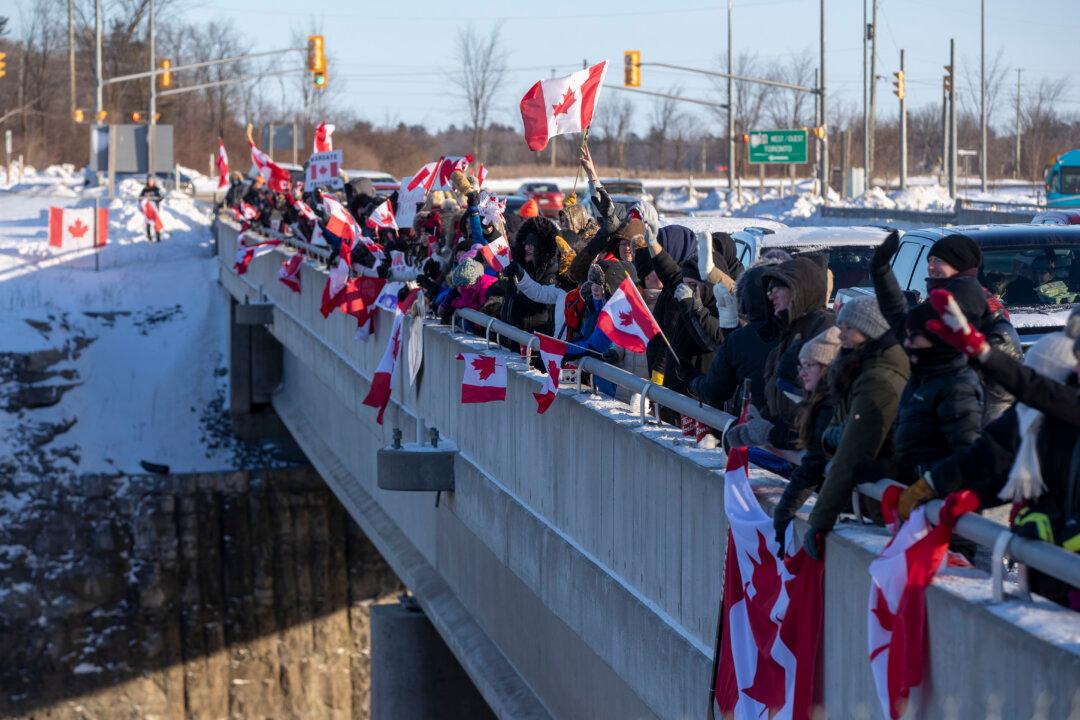An adviser to Prime Minister Justin Trudeau discussed with the public safety minister’s communications director how to shape coverage of the Freedom Convoy before it arrived in Ottawa, text messages reveal, saying they could employ a similar tactic to messaging used for the Jan. 6, 2021, riot at the U.S. Capitol.
“I think there could be an opportunity to get in on this growing narrative of the truckers,” said Trudeau adviser Mary-Liz Power in a message to Alexander Cohen, communications director for Public Safety Minister Marco Mendicino.





